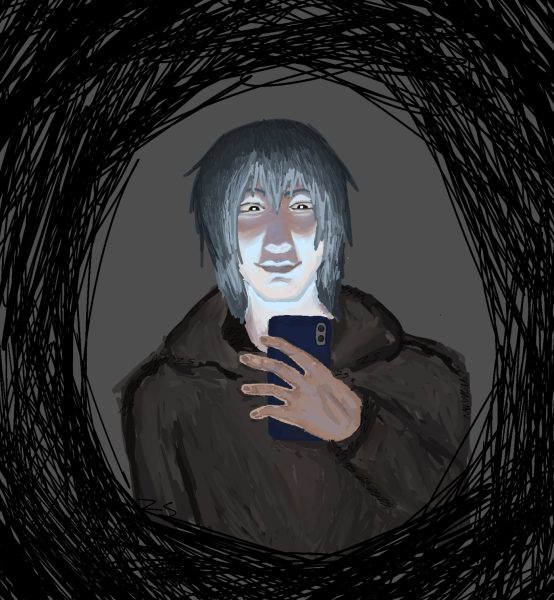How much influence should we let social media have?
From Issue 3
When you wake up in the morning, what’s the first thing you do? I think the honest answer for most is looking at our phone. And as you start grabbing your phone every morning you wake up, it starts to become a routine and then an unhealthy habit.
Have you ever thought about how long you stare at your screen everyday? It seems silly right? Or your inability to not pick up your phone every 5 minutes when a notification pops up. This affects our lives everyday without us fully realizing it. Social media has taken a full grip on our current generation, making it impossible for us to let go. Almost every person in the world has a social media platform such as Instagram, Snapchat, TikTok, Twitter, Facebook, Pinterest, and much more. Our generation has this constant worry that if we don’t look at our phone, we will miss something. Though many people are aware of the negative effects of social media such as anxiety or depression, we still continue to use it. But why? Is it because of the fear of feeling left out or missing something that makes us unable to get away? A research that was recently conducted said that social media addiction affects almost half a million people globally. But how bad is social media really?
If you are a frequent Netflix watcher, you might have seen the documentary The Social Dilemma. The documentary’s release on Netflix came out at an interesting time, especially since the pandemic led people to be more reliant on technology than ever. The Social Dilemma shows behind the scenes of what social media’s role is in for their viewers. The film answers the question on why social media is so addicting. It reveals that many social media platforms are manipulatively designed based on something called an attention-extraction model. This is specifically made to control what is on our feed and to keep us scrolling page after page. It is crazy to know that companies such as Facebook or Instagram know the specific type of articles that you read, the sources you prefer, and even how you politically lean. With this, it slowly unfolds our desire to stay connected and to be approved by others, allowing us to feel a “high” every time we receive a like or reply. The reliance on social media to feel “validated” by others has started to become much more apparent and concerning. Every day people are facing anxiety or depression, bad sleeping habits, cyber-bullying, and even distorting body image.
I’m sure that you know what an influencer is by now. They are typically younger wealthier people with a lifestyle that is sponsored by platforms such as TikTok, YouTube, or Instagram. Though you might think they are annoying or irrelevant, they are connected to nearly everyone; this puts them in a very powerful position for influence. With the 2020 Presidential election so close, a number of influencers, politicians, and celebrities have been encouraging people to vote. The large amount of attention influencers receive is just the same as the amount of hate. Harassment or being canceled on social media now seems to be very common in our generation. Many YouTubers and TikTok stars have been cyberbullied and have even deleted their accounts or stopped posting for a while because of the non-stop hate.
According to a Pew Research Center survey of U.S. adults given in July 2020, “⅔ of Americans said that social media had a mostly negative effect on the way things are going in the country today. Those who have a negative view of the impact of social media mentioned, in particular, misinformation and the hate and harassment they see on social media. They also have concerns about users believing everything they see or read – or not being sure about what to believe.” Not knowing what to believe seems to be a concern for many social media users these days. Along with the fake news and spread of misinformation, social media platforms display news specific to that person’s bias. It might not seem like a big deal, but this creates polarization between political parties because each believes that what they’re reading is trustworthy.
So enough with the negative and let me talk about some positive outcomes of social media. As always, social media has continued to connect people, allowed for creativity and opportunity to spread kindness, and has given people a voice. With the right person using social media, they can create change and leave a positive digital footprint in the world.
After listening and reading everything about social media, do you think it is time to give it up? Are you really consumed with it more than you should be?







